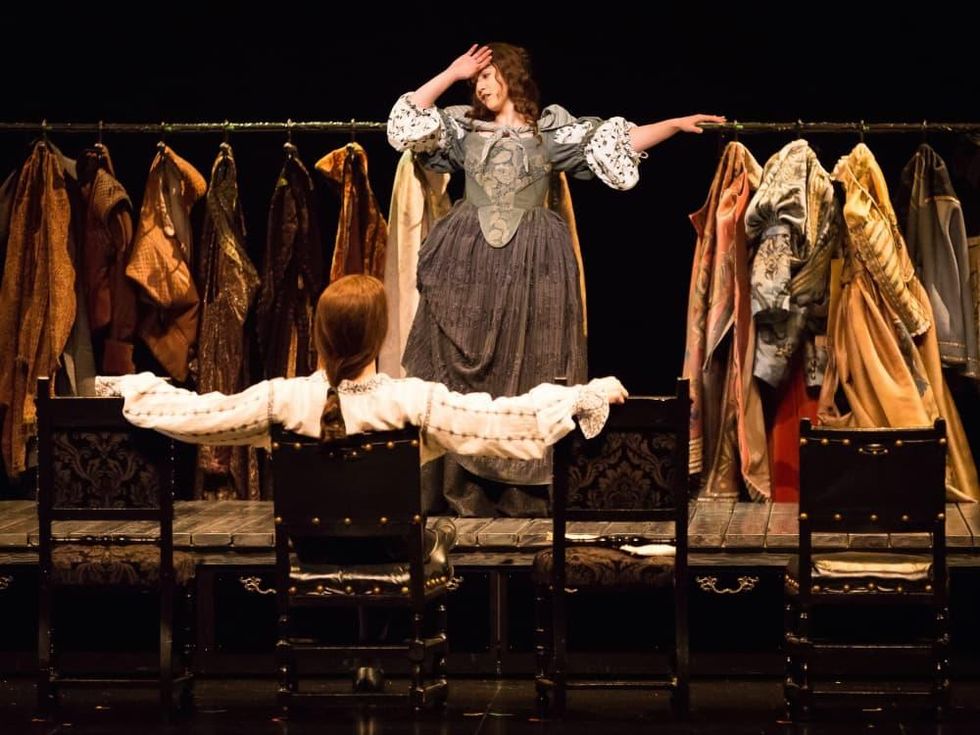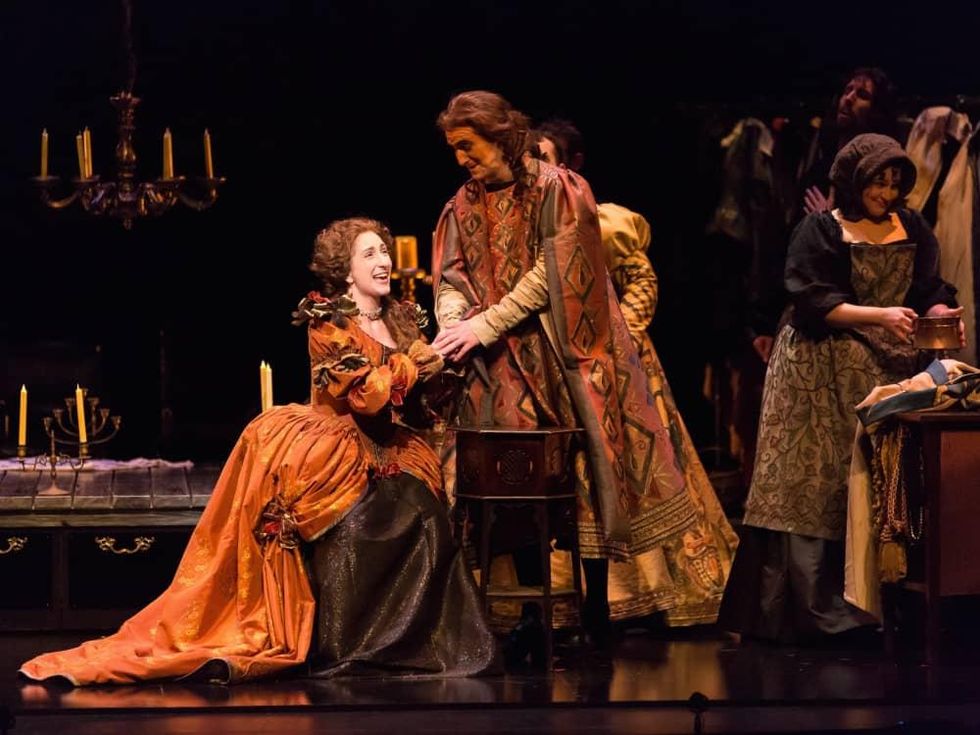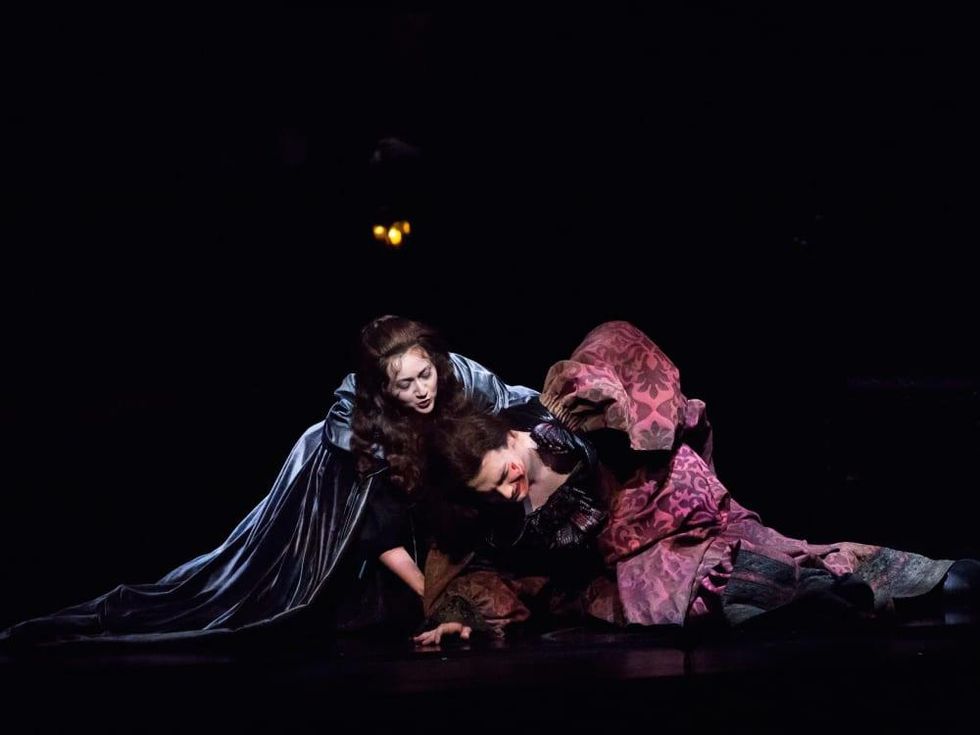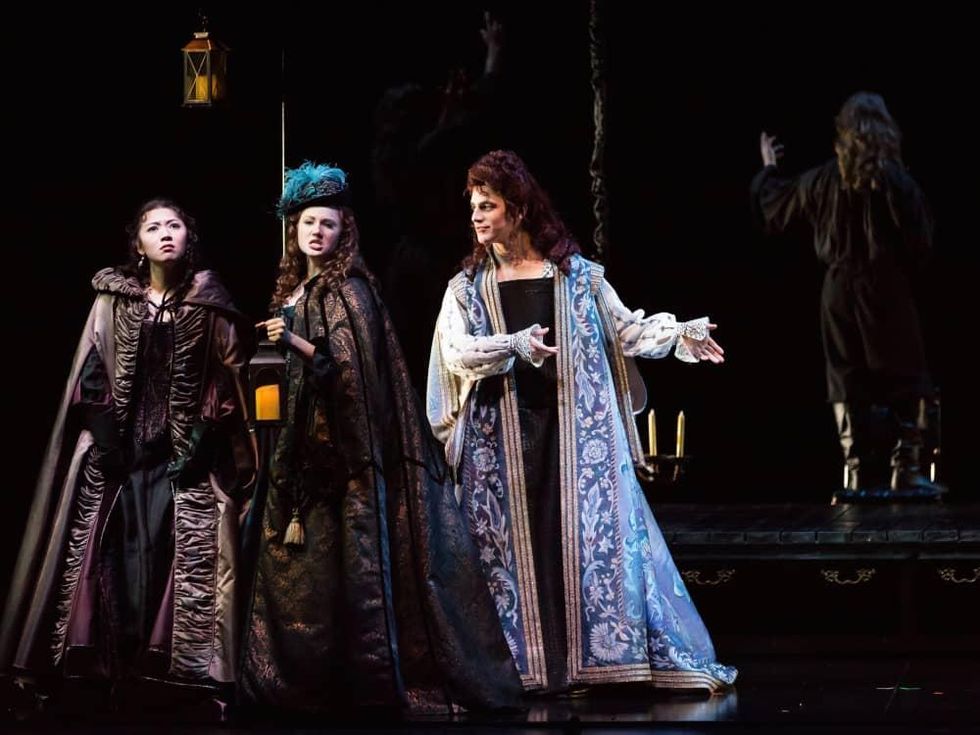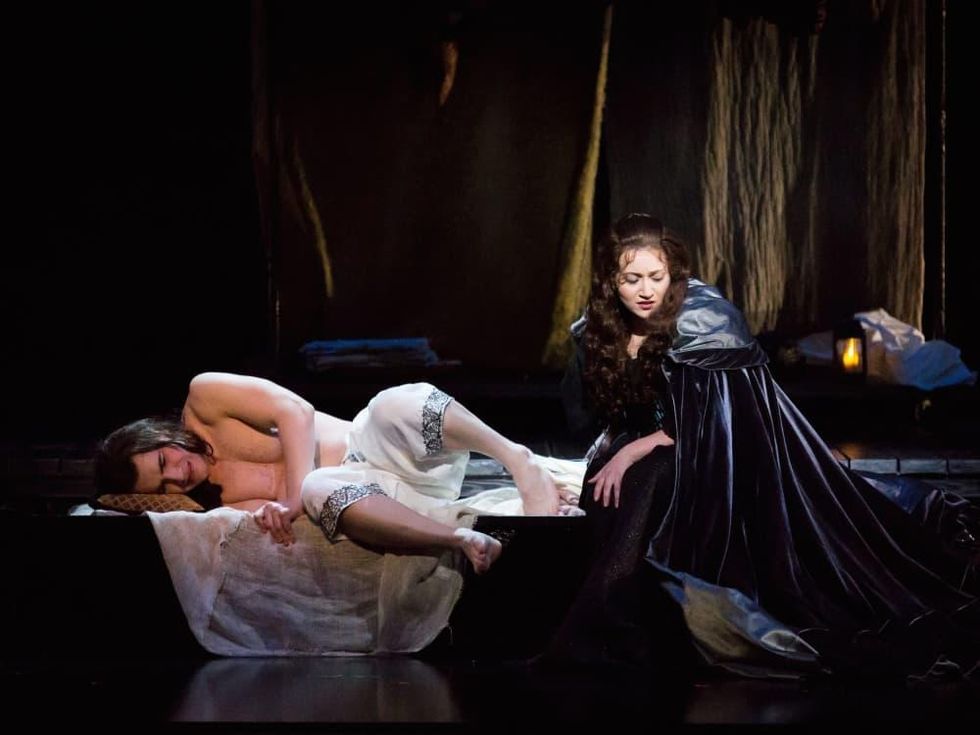The Review Is In
Carlisle Floyd's sophisticated Prince of Players triumphs in HGO's beautiful premiere
The first few minutes of Carlisle Floyd's new opera, Prince of Players, do not comprise an overture. Rather, viewers hear a very high note and then a very low one as the curtain rises on a musical setting of a scene from Shakespeare's Othello. It features baritone Ben Edquist as the actor Edward Kynaston, who is in turn playing Desdemona, already suggesting a self-reflexive work that is going to comment upon itself as a theatrical event. The scene is musically thoughtful and dramatically intense. With its spare and expressive musical phrases, it is also clearly the work of a master.
Houston Grand Opera has a great success with Prince of Players, the company's most beautiful premiere in many years and certainly the most significant chamber opera it has presented since Britten's The Rape of Lucretia. It made me wonder how this gifted composer has largely escaped my attention in more than 40 years of going to the opera.
The last Floyd piece I had the privilege to witness was his Citizen of Paradise. As performed by the brilliant Susanne Mentzer a few years ago at the Shepherd School of Music, it was an approximately half-hour mono-drama culled from poems and literary fragments by Emily Dickinson. Mentzer's expert staging made it into something emotionally devastating, and the music texture struck me as almost atonal. It is a piece by a mature composer for an accomplished artist, and it requires endurance from both performer and audience. I could understand why most singers wouldn't dare to take it on.
In examining a turbulent period in England's history, Prince of Players nonetheless has a kind of timeless quality, making for an opera that many companies will want to perform. Its central character, Restoration actor Edward Kynaston (1640-1712) faces unrelenting impermanence, both in his personal and professional life.
The story evokes gender politics in the most literal terms. Charles II pronounces an edict that allows women to perform on stage and forbids men to continue in female roles. "Out with the old, in with the new," as he quips. Kynaston is thus debased in a manner that reminds me of Emil Jannings' fate in The Blue Angel. Here, the actor is reduced to singing in a lowly pub as Lusty Louise. One of her songs centers on a man who "has no balls," literally. The situation changes again by the finish of the opera, but I don't want to spoil it.
What is missing from so many new operas? Listen carefully to this one and you'll notice duets, small ensemble passages, and more than a few terrific choral sections. While the work is based on Jeffrey Hatcher's play Compleat Female Stage Beauty, it is hardly just a setting of individual lines. In other words, Floyd made a libretto out of the play that works with musical devices as the primary material, not just dialogue. It is not merely a sung version of the play.
Secondly, Floyd has a feeling for the natural rhythm of words, and he knows where to place the high notes and how to make the most of the vowels. A consonant is a device, hot a chance happening. This can only come from decades of composing for singers. The HGO singers made the most of these lines, and I would even venture to say that the projected text was mostly unnecessary. Of course, Floyd wrote operas in English long before projected text was in common use. Many contemporary composers don't worry about how the text sounds when its sung, because they are used to falling back on the projections.
Lastly, the orchestration is heavenly, particularly in the interludes where there is no singing at all. It seems so simple, but Floyd has something he actually wants to say within the realm of pure music. The extreme elegance of what he has offered us here is daunting. Conductor Patrick Summers was clearly inspired on opening night, with an ensemble very well-rehearsed. Floyd's texture is a kind of wandering, non-functional diatonic harmony that seems to lead the listener along a path. There is no place really to hide, and each instrument shimmers with its own colors. Particularly gorgeous themes appear in the woodwinds, especially the oboes and bassoons.
In the leading role, Ben Edquist has a strong, smooth baritone voice that can easily handle Floyd's tricky, through-composed style. A scene where he is practicing female gestures is beautifully staged, and Floyd gives us a haunting accompaniment for this dramatic moment. His romantic scene with Villiers, Duke of Buckingham was clumsy enough to be embarassing, but hopefully the two will reign it in by the end of the run.
In the latter role, Scott Quinn is remarkable and powerful, especially in the scene where he advises Kynaston of their inevitable break-up. Mane Galoyan as Margaret Hughes took a while to warm-up (something Floyd seemed to expect her to accomplish before the opera begins) but she settled in by the second act. Of note is a stunning extended duet for Pureum Jo and Megan Samarin, who make a wonderfully comic impression with a challenging series of phrases.
For a scene preceding the royal banquet, Floyd composed a kind of spare Pavane, both ethereal and haunting. On stage is a kind of silent processional. It is one of those moments in the theater that captures your imagination and stays in your head, whether you want it to or not. It preceded my dreams as I drifted off to sleep last night, happy to contemplate this wonderful, invigorating addition to American opera repertory.
----------
Prince of Players will be performed on March 11 and March 13. For information, visit the Houston Grand Opera website.
